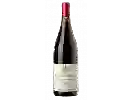
Domaine Saint NicolasGammes d'été Blanc
This wine is a blend of 2 varietals which are the Chardonnay and the Chenin blanc.
This wine generally goes well with fruity desserts, pork or vegetarian.
Food and wine pairings with Gammes d'été Blanc
Pairings that work perfectly with Gammes d'été Blanc
Original food and wine pairings with Gammes d'été Blanc
The Gammes d'été Blanc of Domaine Saint Nicolas matches generally quite well with dishes of pork, rich fish (salmon, tuna etc) or shellfish such as recipes of bare-assed cockerel (ardennes), poached salmon in coconut milk with curry or fish curry à la reunion.
Details and technical informations about Domaine Saint Nicolas's Gammes d'été Blanc.
Discover the grape variety: Chardonnay
The white Chardonnay is a grape variety that originated in France (Burgundy). It produces a variety of grape specially used for wine making. It is rare to find this grape to eat on our tables. This variety of grape is characterized by small bunches, and small grapes. White Chardonnay can be found in many vineyards: South West, Burgundy, Jura, Languedoc & Roussillon, Cognac, Bordeaux, Beaujolais, Savoie & Bugey, Loire Valley, Champagne, Rhone Valley, Armagnac, Lorraine, Alsace, Provence & Corsica.
Last vintages of this wine
The best vintages of Gammes d'été Blanc from Domaine Saint Nicolas are 2018
Informations about the Domaine Saint Nicolas
The Domaine Saint Nicolas is one of of the world's great estates. It offers 36 wines for sale in the of Loire Valley to come and discover on site or to buy online.
The wine region of Loire Valley
The Loire Valley is a key wine region in western France. It follows the course of the Loire River on its Long journey through the heart of France, from the inland hills of the Auvergne to the plains of the French Atlantic coast near Nantes (Muscadet country). Important in terms of quantity and quality, the region produces large quantities (about 4 million h/l each year) of everyday wines, as well as some of France's greatest wines. Diversity is another of the region's major assets; the styles of wine produced here range from the light, tangy Muscadet to the Sweet, honeyed Bonnezeaux, the Sparkling whites of Vouvray and the juicy, Tannic reds of Chinon and Saumur.
The word of the wine: Drawing (liqueur de)
In champagne and sparkling wines of traditional method, addition to the wine, at the time of bottling (tirage) of sugars and yeasts dissolved in wine. These components will provoke the second fermentation in the bottle leading to the formation of carbon dioxide bubbles.














